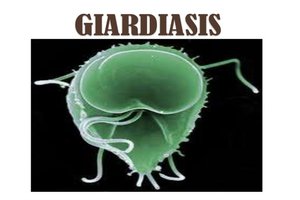- Home
- Editorial
- News
- Practice Guidelines
- Anesthesiology Guidelines
- Cancer Guidelines
- Cardiac Sciences Guidelines
- Critical Care Guidelines
- Dentistry Guidelines
- Dermatology Guidelines
- Diabetes and Endo Guidelines
- Diagnostics Guidelines
- ENT Guidelines
- Featured Practice Guidelines
- Gastroenterology Guidelines
- Geriatrics Guidelines
- Medicine Guidelines
- Nephrology Guidelines
- Neurosciences Guidelines
- Obs and Gynae Guidelines
- Ophthalmology Guidelines
- Orthopaedics Guidelines
- Paediatrics Guidelines
- Psychiatry Guidelines
- Pulmonology Guidelines
- Radiology Guidelines
- Surgery Guidelines
- Urology Guidelines
Giardiasis may be a disease of the ecology of the GI tract

Colonization by the human and animal parasite, Giardia, changed the species composition of the mouse microbiome in a way that might be harmful. The research is published in Infection and Immunity, a journal of the American Society for Microbiology.
"This shift is generally characterized by more aerobic bacteria and less diversity of anaerobic species in the gastrointestinal tract," said coauthor Scott C. Dawson, Associate Professor of Microbiology and Molecular Genetics, the University of California, Davis. "This suggests that Giardia infection could at least in part be an ecological disease, with parasite colonization disrupting the previously stable ecology of the gut."
Indeed, "We found changes in the host microbial community throughout the entire gastrointestinal tract," said Dawson. These findings challenge the conventional wisdom that Giardia is a disease of the small intestine.
"We infected mice with Giardia, sacrificed them at different times post-infection, and sequenced specific regions throughout the entire gastrointestinal tract using high-throughput 16S ribosomal RNA sequencing," said Dawson. This enabled the investigators to quantify the shifts in microbial diversity in each part of the GI tract, following infection. They also pre-treated one cohort of mice with antibiotics, to determine if that pretreatment resulted in different shifts in the microbiome as compared to those in mice not receiving antibiotics (it did so).
The various investigators had different motives for their interest in conducting this research, said Dawson. Steven M. Singer, of Georgetown University, Washington, DC, had previously noted that when mice were infected with a human Giardia, they had to be pre-treated with antibiotics in order for a robust infection to develop. "That suggested that the gut microbiome had a protective effect in limiting giardiasis," said Dawson.
Furthermore, giardiasis is a major cause of sickness and malnutrition in developing nations, said Dawson, infecting an estimated 200 million in Africa, Asia, and Latin America, "often infecting children in communities without access to clean water. In the US, more than 15,000 cases were reported in 2012.
"While symptoms can be severe or even debilitating, the mechanism by which Giardia infection causes the disease symptoms remains unclear," said Dawson. "As an anaerobic, fermenting, eukaryotic parasite, we reasoned that Giardia's unique anaerobic metabolism may disturb host gut ecology." (Eukaryotes are all organisms with cells that contain a nucleus, from microbes to plants to vertebrates. Prokaryotes, mostly bacteria, have much simpler cells, which lack a nucleus.)
Partly as a result of the unknown mechanism, there are few novel therapeutics, said Dawson. Moreover, even when treatment eradicates the parasite, GI symptoms may persist.
You can read the full Article by clicking on the link :
N. R. Barash, J. G. Maloney, S. M. Singer, S. C. Dawson. Giardia alters commensal microbial diversity throughout the murine gut. Infection and Immunity, 2017; IAI.00948-16 DOI: 10.1128/IAI.00948-16

Disclaimer: This site is primarily intended for healthcare professionals. Any content/information on this website does not replace the advice of medical and/or health professionals and should not be construed as medical/diagnostic advice/endorsement or prescription. Use of this site is subject to our terms of use, privacy policy, advertisement policy. © 2020 Minerva Medical Treatment Pvt Ltd